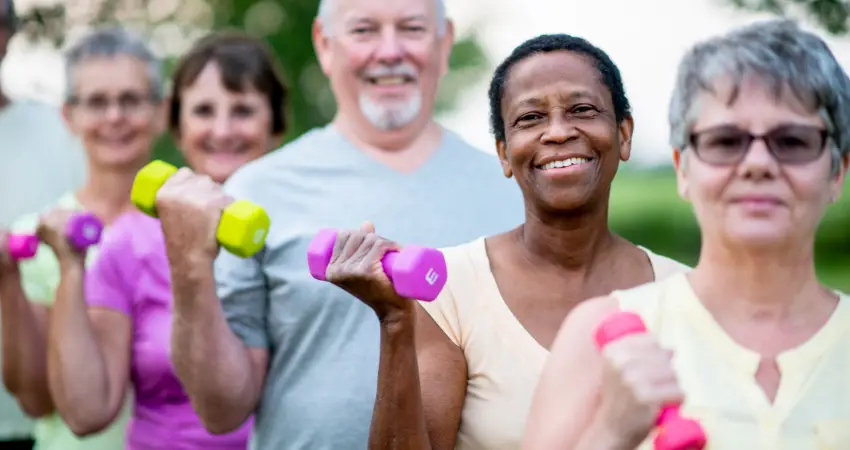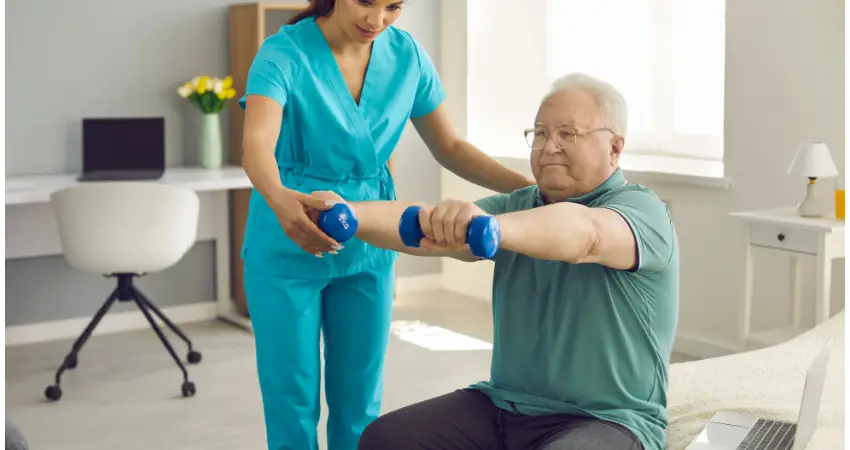Introduction
Experiencing a heart attack can be a transformative event that leaves individuals feeling frightened, overwhelmed, and uncertain about their future. Thankfully, there are steps one can take to improve their health and lower the risk of future heart complications.
One of these steps is participating in a cardiac rehabilitation program. In this article, we’ll discuss the advantages of cardiac rehabilitation following a heart attack and how it can help you regain your health and self-assurance.
Understanding Cardiac Rehabilitation
Cardiac rehabilitation is a medically monitored program intended to help individuals recover from heart-related incidents, such as heart attacks, heart surgeries, or chronic heart conditions.
The program is tailored to each person’s needs and typically encompasses a blend of exercise, education, and support services.
Types of Cardiac Rehabilitation Programs
There are two primary types of cardiac rehabilitation programs: inpatient and outpatient. Inpatient programs occur in a hospital or rehabilitation facility, while outpatient programs can be conducted at home or in a community setting.
The type of program best suited for you depends on your medical necessities and personal preferences.

Key Elements of Cardiac Rehabilitation
Cardiac rehabilitation programs usually include three main components: exercise training, education, and counseling.
Exercise training helps improve your cardiovascular fitness, while education equips you with the information required to make heart-healthy lifestyle adjustments. Counseling and support services tackle the emotional aspects of recovery and help you create a support network.
Advantages of Cardiac Rehabilitation After a Heart Attack
Enhancing Heart Function
A primary benefit of cardiac rehabilitation is improved heart function. Regular physical activity strengthens the heart muscle, improves blood circulation, and increases oxygen delivery to your body. This enables your heart to work more efficiently and can enhance your overall cardiovascular health.
Minimizing Future Heart Issues
Cardiac rehabilitation can also aid in reducing your risk of future heart problems. By teaching you how to make healthier lifestyle decisions, such as adopting a heart-healthy diet, quitting smoking, and managing stress, you can decrease your chances of experiencing another heart attack or developing other heart-related complications.
Boosting Emotional Health
Recovering from a heart attack can be emotionally challenging. Cardiac rehabilitation programs provide counseling and support services to help you deal with feelings of anxiety, depression, and fear.
This can improve your emotional well-being and give you the confidence required to return to your daily activities.
Encouraging a Healthy Lifestyle
Another advantage of cardiac rehabilitation is that it promotes a healthy lifestyle. Through education and support, you’ll learn how to make better choices regarding nutrition, exercise, and stress management. This can lead to long-term enhancements in your overall health and quality of life.

Creating a Support Network
Cardiac rehabilitation programs often include group sessions, allowing you to connect with others who have gone through similar heart-related events. This can help you build a support network of people who understand your challenges and can offer encouragement and advice as you navigate your recovery.
Related Articles
Widow makers Heart Attack
Normal Troponin Levels
Are Sock Marks a Sign of Heart Disease
Symptoms of Too Much Magnesium
Cardiac Rehabilitation Process
Evaluation
Before beginning a cardiac rehabilitation program, you will undergo a comprehensive assessment by a team of healthcare professionals.
This assessment will examine your medical history, current health status, and risk factors for future heart complications. The results of this assessment will be used to develop a personalized rehabilitation plan tailored to your specific needs.
Personalized Plan
Each person’s cardiac rehabilitation program is unique and designed to address their specific needs and goals. Your program may include a combination of exercise, education, and counseling services, as well as any additional support you may need to improve your heart health.
Learning
A crucial component of cardiac rehabilitation is education. You will learn about your heart condition, how to manage your risk factors, and how to adopt a heart-healthy lifestyle. This knowledge can empower you to take control of your health and make informed decisions about your recovery.

Physical Activity
Exercise is an essential part of cardiac rehabilitation. You will participate in supervised exercise sessions designed to improve your cardiovascular fitness and strengthen your heart muscle. These sessions may include activities such as walking, cycling, or swimming, depending on your abilities and preferences.
Guidance and Encouragement
Counseling and support services are an important aspect of cardiac rehabilitation. You may work with a mental health professional to address any emotional challenges you may be facing and learn strategies to cope with stress, anxiety, and depression.
Beginning Cardiac Rehabilitation
Frequently Asked Questions (FAQs)
- How long does a cardiac rehabilitation program last? The duration of a cardiac rehabilitation program varies depending on the individual’s needs and progress. Generally, programs last for 12 to 16 weeks, with participants attending 2 to 3 sessions per week.
- Can I participate in cardiac rehabilitation if I have other health conditions? Yes, most cardiac rehabilitation programs can accommodate individuals with other health conditions. Your healthcare team will work with you to develop a personalized plan that addresses your specific needs and limitations.
- Is cardiac rehabilitation covered by insurance? Most insurance plans, including Medicare, cover cardiac rehabilitation services. It’s essential to check with your insurance provider to determine the extent of your coverage and any out-of-pocket costs you may incur.
- Can I do cardiac rehabilitation at home? While some aspects of cardiac rehabilitation, such as exercise and education, can be done at home, it’s important to have regular check-ins with your healthcare team to monitor your progress and ensure you’re on the right track. Some programs offer remote monitoring and telehealth services to support participants who may not be able to attend in-person sessions.
- What happens after I complete my cardiac rehabilitation program? After completing your cardiac rehabilitation program, it’s important to maintain the healthy lifestyle changes you’ve made and continue with regular exercise and heart-healthy habits. Your healthcare team will provide you with guidance and resources to help you transition to a long-term maintenance plan. Staying committed to your heart health will significantly reduce the risk of future heart problems and improve your overall quality of life.

Long-Term Benefits of Cardiac Rehabilitation
By consistently implementing the habits and practices learned during cardiac rehabilitation, you can continue to experience long-term benefits for your heart health and overall well-being. These benefits may include:
- Better physical fitness: As you continue to exercise regularly, you’ll maintain or even improve your cardiovascular fitness, which can have a positive impact on your daily activities and overall energy levels.
- Weight management: A heart-healthy diet and regular exercise can help you manage your weight, reducing the strain on your heart and lowering your risk of heart disease and other health complications.
- Improved mental health: The emotional support and coping strategies learned during cardiac rehabilitation can have lasting effects on your mental health, helping you manage stress and anxiety more effectively.
- Stronger social connections: The relationships built during group sessions in cardiac rehabilitation can provide ongoing support and encouragement, helping you stay committed to your heart health journey.
- Increased confidence: Successfully completing a cardiac rehabilitation program and seeing the improvements in your health can boost your confidence and empower you to take control of your well-being.
It’s essential to remember that maintaining heart health is a lifelong commitment. By continuing to prioritize the practices learned during cardiac rehabilitation, you can experience lasting benefits for your heart, mind, and overall quality of life.


